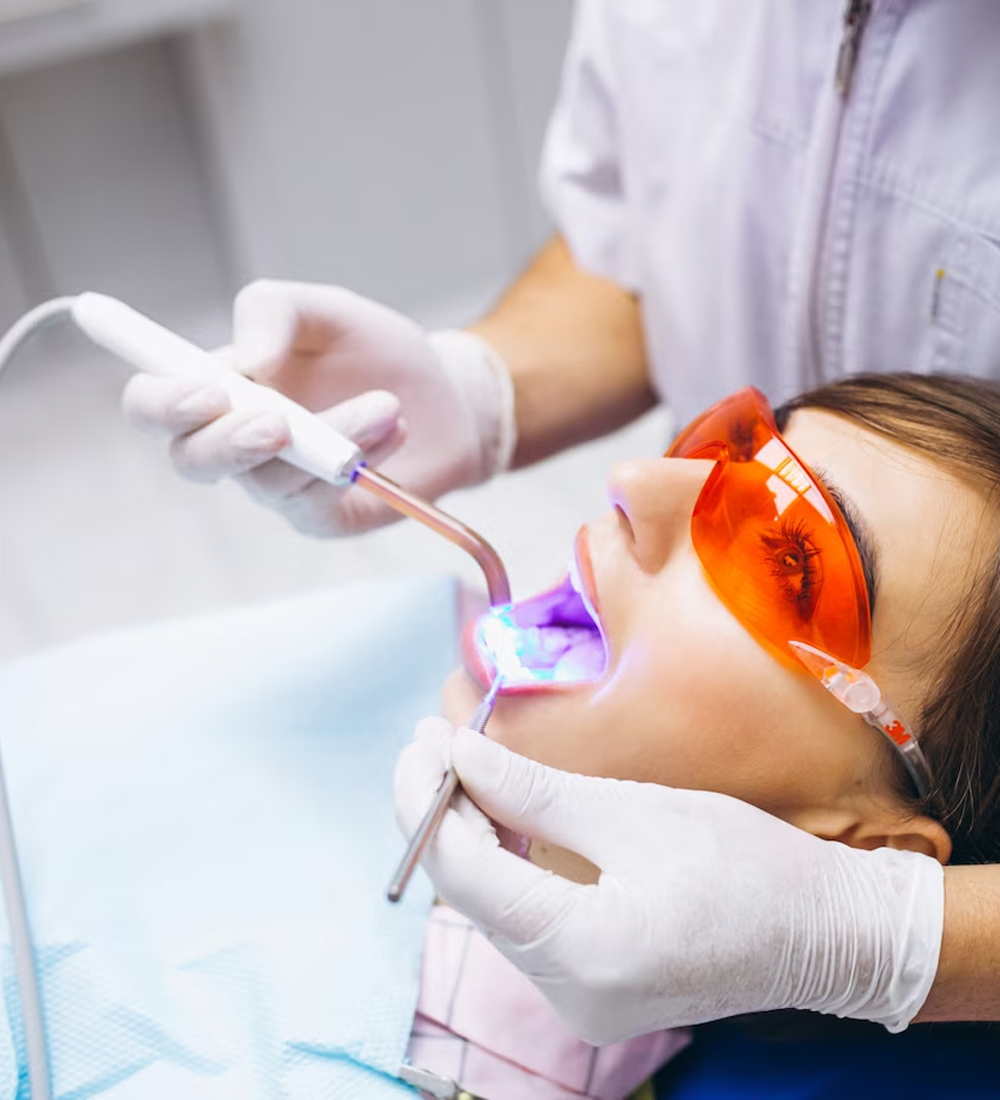Laser Dentistry
Exploring the Innovative Realm of Laser Dentistry
While relatively recent, Laser Dentistry holds immense promise for the future, particularly for patients seeking alternatives to more painful procedures.
Understanding Laser Dentistry:
Laser Dentistry is a specialized field that harnesses the power of lasers to reshape, drill, or treat a range of dental issues. Recognized and approved by the FDA for various treatments, it stands out for its effectiveness and reduced invasiveness.
Applications of Laser Dentistry:
Laser Dentistry plays a pivotal role in both aesthetic and therapeutic dentistry, providing unique benefits in various treatments.
Aesthetic Laser Dentistry:
Gingival Esthetics:
Laser Dentistry at FlyandSmile is employed to correct gummy smiles by reshaping the gums for a more aesthetically pleasing appearance.
Teeth Whitening:
Utilizing lasers accelerates the teeth whitening process at FlyandSmile, activating bleaching agents for shorter treatment times and enhanced results.
Crown Lengthening:
Laser Dentistry is applied at FlyandSmile to file down teeth, particularly before crown placement, ensuring optimal reshaping for a better fit.
Therapeutic Laser Dentistry:
Detection of Cavities:
Laser Dentistry excels in the early detection of cavities, providing effective diagnostic capabilities.
Dental Fillings:
Painlessly and effortlessly remove cavities with laser dentistry, eliminating the need for drilling or local anesthesia.
Get Your Free Consultation
Tooth Sensitivity:
Laser Dentistry addresses tooth sensitivity by sealing tubules in the tooth’s root, effectively treating sensitivity issues.
Types of Lasers in Laser Dentistry:
There are two primary types of lasers used in Laser Dentistry—soft tissue lasers and hard tissue lasers. Hard tissue lasers alter the shape of teeth, repair dental fillings, and cut through teeth. Soft tissue lasers are ideal for treating gum deformities, stimulating tissue growth, preventing bleeding, treating cavities, and eliminating bacteria.
Benefits of Laser Dentistry:
Soft tissue lasers eliminate the need for sutures.
Stops bleeding by stimulating clotting and closing open vessels.
Often requires no anesthesia in many laser dentistry procedures.
Provides higher precision, inflicting less damage to neighboring tissues.
Shortcomings:
Incompatibility with metal fillings.
Suitability varies from case to case, with your doctor determining qualification for the treatment.
Laser Dentistry emerges as a transformative force, offering a spectrum of benefits in both aesthetic enhancements and therapeutic interventions.

